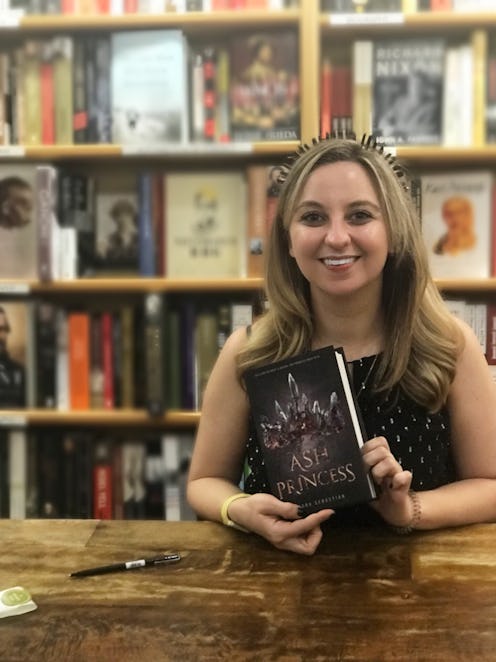Books
Writing Fanfic Helped Me Cope With Depression As A Teen — Now I'm A Bestselling Author

If you were to ask my parents about my high school friends, they would probably reply with a blank stare. After a moment, they might sputter out a couple of names, unsure, with invisible question marks hanging in the air. They might eventually name the friend I’ve known since preschool who, while a friend then and now, lived an hour and a half away through middle and high school. As the only introvert in a family of extroverts, I never figured out how to correctly explain to them that the closest friends I had lived inside my computer.
Even now, it would likely only earn me a worried look in response, though I will be quick to point out that having met all of those friends in person by now, that all of us were exactly who we claimed to be: a group of teenage girls, scattered around the world, born into very different lives. In a world before the internet, our paths never would have crossed.
"As the only introvert in a family of extroverts, I never figured out how to rightly explain to them that the closest friends I had lived inside my computer."
Our bond was simple and not at all an uncommon one: a love of Harry Potter and the world created by J.K. Rowling. There were about six of us steadily, though others would come and go. Although we didn’t have a lot in common on paper, we were kindred spirits in a way: All of us were lonely and, I think, in some manner or other, hiding.
The act of writing with other people was more intimate than any conversations I had with people in real life. Covered in the armor of fiction, we were free to explore topics that we weren’t yet ready to in reality. It provided a safe space to vent about issues with family, to explore sexualities, to talk frankly about our mental health.
"The act of writing with other people was more intimate than any conversations I had with people in real life. Covered in the armor of fiction, we were free to explore topics that we weren’t yet ready to in reality."
It was through writing fan fiction and talking to my friends on AIM that I first started to understand that the depression and anxiety that had always made me feel isolated and strange were actually not as uncommon as I thought. It was through those relationships that I learned to become comfortable talking about it, that there was nothing taboo about discussing mental health. I think it was the first time I heard someone express the same thoughts and feelings that I’d felt my whole life, the first time someone had talked about the dysfunctional way their brain worked and thought me too. It was the first time I’d felt truly seen by anyone outside of my family.
In hindsight, making those connections and having someone available to talk to at any hour of the day likely saved my life.
It wasn’t all bright and shiny and happy. In a lot of ways, the online community I was a part of was like any real group of teenage friends. There were plenty of cliques and even more drama. Breakups happened. Gossip made its rounds, twisting and changing with every turn. Secret chat groups were formed, strategically leaving certain people out. Shadow forums were created. People were ostracized. Passwords were even stolen at one point. For all of the camaraderie and love, there was a slice of friction to go along with it — as is the case with just about any relationship.
I brought some of those rough patches up with a few people from the group that I’m still friends with and there was a lot of cringing over how we acted, but we all had a good laugh. We had trouble remembering a lot of details about the big blowups we went through or what any of them were about, but we all remembered how life-and-death they felt at the time. It wasn’t just some online group of strangers — we were real friends and that meant we fought like real friends, with high stakes and bared vulnerabilities. We fought because we cared and we came out the other side stronger.
"It wasn’t just some online group of strangers — we were real friends and that meant we fought like real friends, with high stakes and bared vulnerabilities."
And then there was the fan fiction itself — the vast majority of it so cringeworthy I can’t even think about it let alone recount it for anyone else (though the site we used does still exist and it is sometimes fun to go back and take a peek into my teenage brain). Most of it was meandering and plotless on my part, more character-centric than an actual story — a habit it took a long time for me to unlearn. But it was through working with other writers that I did eventually figure out my weak points as an author and learned how to correct them.
Writing fanfic gets a bad reputation, but I think it can be an incredibly helpful building block for writers. It’s a bit like playing on someone else’s playground, understanding how things fit together, what parts you like, what parts you don’t. When it’s time to design your own, you have a much better sense of how to go about doing it.
I do remember after Harry Potter and the Cursed Child came out, I read it in a state of shock before emailing a friend I had written a veritable saga with that centered on a romance between Harry Potter and Lord Voldemort’s offspring.
“Hey, it’s basically canon now,” I told her.